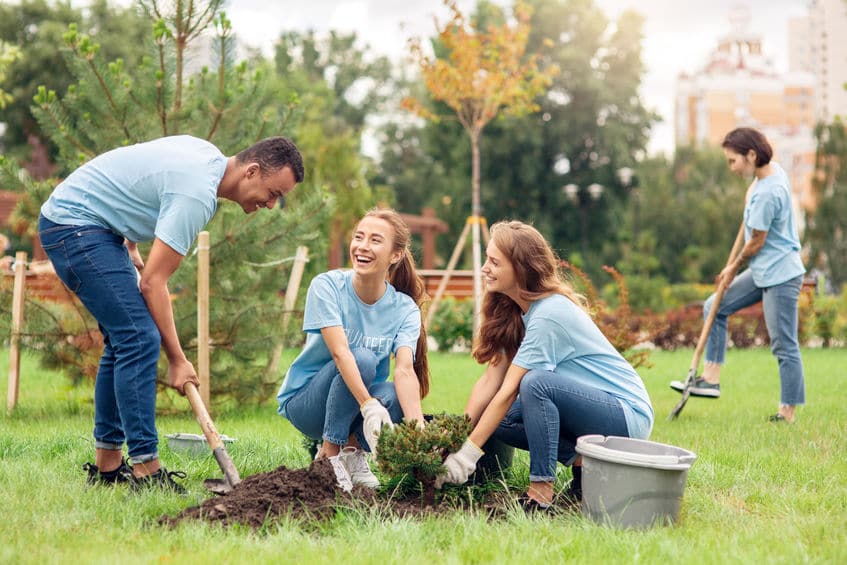
By Rosalyn Leban
Getting involved with your host community is a great way to get a more complete experience as a fellowship or grant recipient, especially for those engaging in research projects outside of their home communities. While it can be easy to feel disconnected from the broader community when you are spending most of your days buried in books or in the lab, it’s important to remember that your grant period is about more than just your research. Some grants, like the Fulbright Student Research Fellowship, specifically suggest volunteering in your host community.
By volunteering during your fellowship, you can connect more deeply with the community in which you’re spending your grant period while gaining experience. If you follow these steps, you will enhance your experience, gain skills, and give back to the community that has welcomed you during your grant period.
1. Find a group or organization with which you’d like to work.
Finding a great volunteer opportunity can be difficult if you’re living in a new place without a strong network. If you have an institutional partner in your host community, like a university, your contacts there may be able to help you connect with an organization that fits your priorities. Think about the kind of volunteer work in which you usually engage in your regular life. The same organizations may not exist where you’re carrying out your grant activities, but you may be able to find a group that addresses a similar need in your host community. Once you’ve thought about what kind of volunteering you’d like to do, ask your institutional contacts, your neighbors, and your friends for recommendations.
2. Identify your goals as a volunteer.
Finding an organization that connects with your values is extremely important. Just as important is making sure that the role you’ll be playing within that organization takes advantage of your skills in a meaningful way. When you connect with the organization with which you plan to work, make sure you make your priorities clear so that each party is getting as much as they can out of the partnership. Make sure that your volunteering connects effectively with the goals you have set out for your time as a fellow. However, it doesn’t have to be a direct connection! If you are studying public health, for example, volunteering as a staff member in a food pantry might be a great way to get acquainted with the public health implications of food insecurity even if a direct connection to your research isn’t immediately evident.
3. Give it your all.
As with everything during your fellowship and beyond, you will benefit from your volunteer work according to the effort you put in. When you’re volunteering with an organization, give it your full attention. Put your research and other aspects of your life aside for a few hours a week to focus on the volunteer work you’re passionate about. You will likely find that you benefit from taking a break from your fellowship responsibilities, which can feel all-consuming if you don’t have other activities to vary your days. This will allow you to come back to your research refreshed as well as cultivating a meaningful connection with the community in which you’re spending your grant period.
4. Prepare the organization for your departure.
Fellowships are a time-limited opportunity. One of the biggest issues with volunteering for a limited time is leaving a gap in organizations that may be struggling. It is important to be sure that you are working with your host organization to develop long-term solutions that address the same gaps in their services which your role addresses on a short-term basis. When you’re volunteering in a community outside your own, especially if you’re coming from a position of relative privilege, it’s important to be very conscious of your role. Prioritize long-term benefits for the communities and organizations you hope to serve as a volunteer. Make sure that your host organization is aware of the length of time you’ll be available to volunteer and collaborate with your supervisors to prepare an exit plan that ensures the contributions you’ve made to the organization outlive your limited tenure.
5. Stay connected after you leave!
After your fellowship is over and you’ve moved on to your next venture, don’t fall out of touch with the connections you made throughout the grant period. Completing a fellowship in a community is a meaningful experience and maintaining contact with organizations in your host region is an excellent way to keep yourself up-to-date with local events. Also, if you ever want to return to your host community, you may be able to collaborate with the same organization or engage your network to find other opportunities.

© Victoria Johnson 2020, all rights reserved